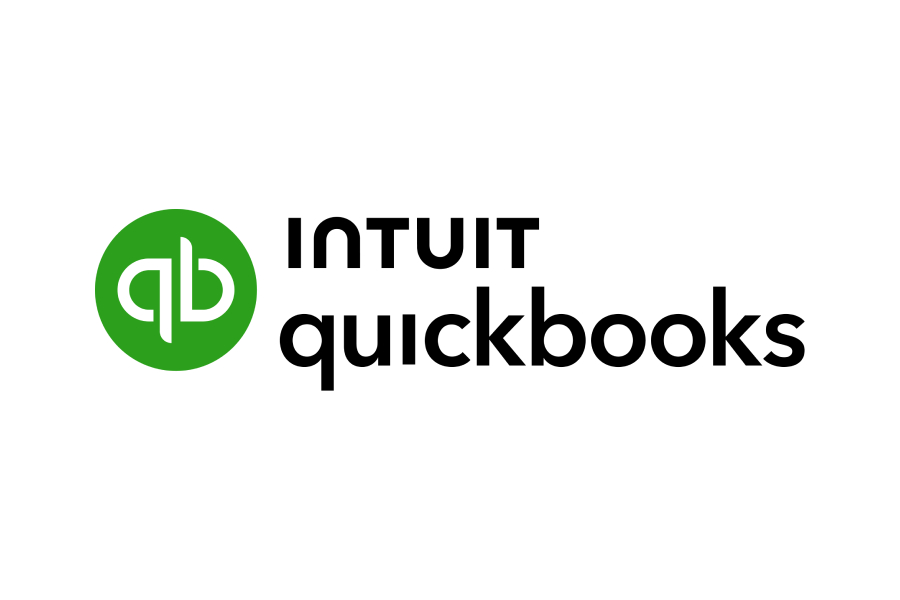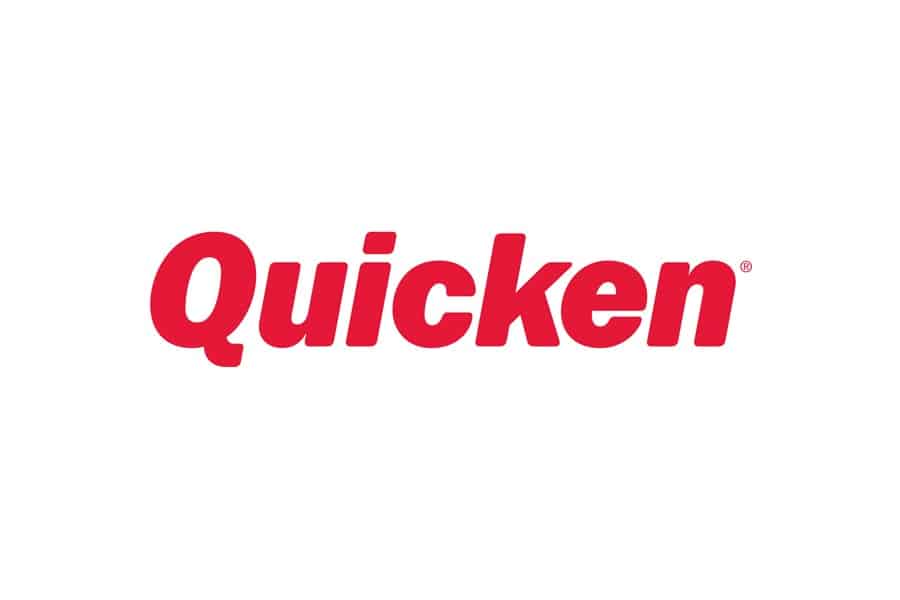Quicken and QuickBooks Online serve mostly different purposes, but there is some overlap. Quicken is primarily a personal finance app while QuickBooks Online is a very popular small business bookkeeping software. Quicken focuses on personal finance features, such as budgeting, investment tracking, and bill management. It also has features to track the income and expenses of rental houses and simple one-person businesses. Meanwhile, QuickBooks Online is a double-entry accounting system. It provides a broader set of features tailored to business needs, such as invoicing, payroll, vendor management, and financial reporting.
- Quicken: Best for tracking personal finances and rental property income
- QuickBooks Online: Best for small businesses seeking accounting software to track income and expenses and manage their business
 |  | |
|---|---|---|
Pricing | $5.99 to $10.99, billed annually | $35 to $235, billed monthly |
Free Trial | ✕ | 30 days |
Money-back Guarantee | 30 days | ✕ |
Number of Users Included | 1 | 1 to 25 |
Target Customer | Individuals, landlords, and sole proprietors | Sole proprietors, LLCs, partnerships, corporations, and S corporations |
Double-entry Bookkeeping System | ✕ | ✓ |
Payroll Add-on Available | ✕ | ✓ |
Inventory Tracking | ✕ | ✓ |
Separate Business & Personal Expenses | ✓ | ✓ |
Schedule C & E Reports | ✓ | ✕ |
Print Income Statement & Balance Sheet | ✕ | ✓ |
Rental Property Center | ✓ | ✕ |
Track Investments | ✓ | ✕ |
Ease of Sharing With External Accountants | No built-in feature to share files with external accountant | External accountant can be added without counting it as a full user |
Ease of Setup & Use | Easy | Moderate |
Mobile App | iOS and Android | iOS and Android |
Average Rating on Third-party Sites | 3.9 out of 5 from around 400 Capterra reviews | 4.3 out of 5 from around 7,000 GetApp reviews |
Use Cases and Pros & Cons
User Reviews: QuickBooks Online Wins
 |  | |
|---|---|---|
Average Rating on Third-party Sites | 3.9 out of 5 from around 400 Capterra reviews | 4.3 out of 5 from over 7,000 Capterra reviews |
Users Like |
|
|
Users Dislike |
|
|
Reviewers of Quicken often highlight its affordability and simplicity, particularly for tracking personal expenses. Many also commend its ability to monitor retirement assets effectively. However, its most significant limitation is the lack of basic bookkeeping features. Some users note there is no client invoicing, which isn’t true in the Classic Business and Personal plan. However, I agree invoicing is a weakness as it’s pretty limited.
QuickBooks wins this category with slightly higher user reviews. QuickBooks Online users frequently mention its ease of setup and use, emphasizing its straightforward and intuitive interface. Many also appreciate the wide range of integrations that enhance its functionality. On the downside, some point out the restriction on the number of users, which can be a drawback for growing businesses.
Pricing: Quicken Wins
Quicken | QuickBooks Online | |
|---|---|---|
Monthly Pricing | $5.99 to $10.99, billed annually | $35 to $235, billed monthly |
Numbers of Users | 1 | 1 to 25 |
Special Promo | 30-day money-back guarantee | 50% off for three months or a 30-day free trial |
When I compare Quicken and QuickBooks on pricing, I’d say Quicken comes out ahead if all you need is a tool to track income and expenses for a sole proprietor or freelancer. It offers great value for the price.
QuickBooks Online, on the other hand, is significantly more expensive—its Simple Start plan costs about three times as much as Quicken Home & Business. That said, I believe the higher cost is justified if you need a full bookkeeping system with advanced features like tracking assets and liabilities, generating a balance sheet, and sending invoices to customers.
Features: QuickBooks Online Wins
Quicken | QuickBooks Online | |
|---|---|---|
Platform | Web browser and desktop | Web browser |
Print Complete Financial Statements | ✕ | ✓ |
Integrated Payroll | ✕ | ✓ |
Track Inventory & COGS | ✕ | ✓ |
Separate Activity by Class & Location | ✕ | ✓ |
Track Employee Time & Add to Customer Invoices | ✕ | ✓ |
Double-entry Bookkeeping | ✕ | ✓ |
Track & Categorize Spending | ✓ | ✓ |
Track Unpaid Bills | ✓ | ✓ |
Connect Bank Accounts | ✓ | ✓ |
Manage Lease Terms, Rental Rates & Security Deposits | ✓ | ✕ |
Investment Reporting Features | ✓ | ✕ |
QuickBooks Online outclasses Quicken in terms of features, offering a comprehensive accounting solution. I like that its double-entry bookkeeping system allows you to easily track invoices and manage bills, making it ideal for businesses requiring robust accounting tools.
However, this doesn’t mean Quicken lacks value. It is clearly designed for a specific niche—personal finance management with some light accounting capabilities for a rental or part-time freelance gig. It shines if you want a straightforward way to manage finances and investments without the complexity of full-fledged accounting software.
Ease of Use: QuickBooks Online Wins
Quicken | QuickBooks Online | |
|---|---|---|
Overall Ease of Use | Moderate | Easy |
Online Help Section | ✓ | ✓ |
Community Support | ✓ | ✓ |
Email Support | ✕ | ✕ |
Live Chat Support | Monday to Friday, 5 a.m. to 5 p.m. PT | ✓ |
Phone Support | Monday to Friday, 5 a.m. to 5 p.m. PT | Support will call you—or you can call them in the Advanced plan |
Third-party Support | Limited | Extensive |
QuickBooks Online is indeed easier to set up compared with Quicken because it is entirely web-based. I appreciate that you can access it from any browser without needing to download or install anything, making it a hassle-free choice. Its design also prioritizes business income and expense tracking, which aligns seamlessly with the needs of most small businesses.
Quicken, on the other hand, includes many personal finance features that might feel unnecessary or even confusing if you’re focused solely on business tracking. While Quicken does offer Quicken for Web as a companion app, it requires you to purchase the desktop version first to access its web features. This added step can make it less convenient if you’re seeking a straightforward, web-based solution.
Mobile App: QuickBooks Online Wins
Quicken | QuickBooks Online | |
|---|---|---|
Compatibility | iOS and Android | iOS and Android |
Attach Receipts | ✓ | ✓ |
Create Invoices | ✕ | ✓ |
Enter Vendor Bills | ✕ | ✓ |
View Transactions & Account Balances | ✓ | ✕ |
See Budgets | ✓ | ✕ |
Add Customers & Vendors | ✕ | ✕ |
QuickBooks Online takes the lead when it comes to mobile app features. Its app is a fully functional, standalone tool that lets you handle tasks like invoicing, expense tracking, and financial reporting directly from your phone or tablet. For small to midsize businesses, this convenience and feature set make it the better option.
On the other hand, Quicken’s mobile app feels more like a companion to its desktop version. You have to sync it with the desktop software, and it doesn’t provide the same level of functionality. While it’s fine for managing personal finances, it just doesn’t compete with the flexibility and independence offered by QuickBooks Online for business needs.
Integrations: QuickBooks Online Wins
Quicken | QuickBooks Online | |
|---|---|---|
Marketplace for Third-party Apps | ✕ | ✓ |
Ecommerce Integrations | ✕ | ✓ |
Customer Payment Processing | PayPal | QuickBooks Payments or 3rd party integrations |
Time Tracking | ✕ | ✓ |
In my opinion, QuickBooks Online easily edges out Quicken when it comes to integrations. With access to over 750 third-party apps, it offers unmatched flexibility for businesses.
I’ve seen how its built-in tools—like QuickBooks Payroll, QuickBooks Time, QuickBooks Payments, and QuickBooks Bill Pay—make managing various aspects of a business seamless. On top of that, you can integrate apps like Shopify and Square to streamline ecommerce operations, which adds significant value for online businesses.
Quicken, on the other hand, has far fewer integrations. It works with PayPal for accepting online credit card payments, Dropbox for storing important documents like rental agreements, and Zillow Zestimate for estimating home values.
While these integrations are helpful for personal and rental management, they don’t match the business-focused options that QuickBooks Online provides. That said, I do appreciate Quicken’s built-in bill payment tool, which allows you to pay bills online, similar to QuickBooks Online. However, its limited ecosystem makes it less versatile for business needs.
How I Evaluated Quicken vs QuickBooks
The criteria I used when comparing Quicken vs QuickBooks are as follows:
- Pricing: I reviewed how much the software costs and if a free trial is offered.
- Features: I looked at the features offered, including invoicing, banking and cash management, A/P, inventory management, online scheduling, and online contracts.
- Ease of use: I assessed how easy it is to set up and use both tools, especially for users without extensive technical expertise. I also checked whether the dashboard contains shortcut buttons and other tools that make navigating more intuitive.
- Integrations: I looked at the available integrations for each software and reviewed how easily they integrate.
- Mobile app functionality: I compared the mobile app functionality for each platform and checked whether apps are available for both iOS and Android users.
- Customer support: I reviewed the available customer support options, such as phone, email, live chat, chatbot, and self-help resources. I also considered whether 24/7 support is available.
- User reviews: I read through customer feedback on popular third-party review websites.
Frequently Asked Questions (FAQs)
The main difference between Quicken and QuickBooks is that Quicken focuses on the finances of individuals, whereas QuickBooks focuses on accounting for small businesses. Although Quicken does have a version of its software for both rental property owners and small businesses, it is not double-entry accounting software and thus is not as advanced as QuickBooks.
Yes, Quicken has a mobile app for both iOS and Android users, but its functions are limited. You can view transaction and account balances, attach receipts, and view budgets, but not add customers and vendors, create invoices, or add vendor bills.
Yes, Quicken is less expensive than QuickBooks at prices that range from $5.99 to $10.99 per month, billed annually. QuickBooks charges $35 to $235 monthly, depending on the features and number of users you need.
Yes, it can be used to manage the finances of self-employed individuals with basic bookkeeping needs. However, it is primarily designed for personal finance management. Wave Accounting is better suited to run a business than Quicken and even has a free plan.
Yes. QuickBooks Online offers a 30-day free trial, whereas Quicken offers a 30-day money-back guarantee.
Bottom Line
When it comes to small business bookkeeping, I see QuickBooks Online as the clear choice. It has the features and scalability most businesses need to manage their finances effectively. However, I can see where Quicken might make sense for certain users, like those managing a few rental properties or solopreneurs who prefer to keep their business and personal finances intertwined through linked bank and credit card accounts.


